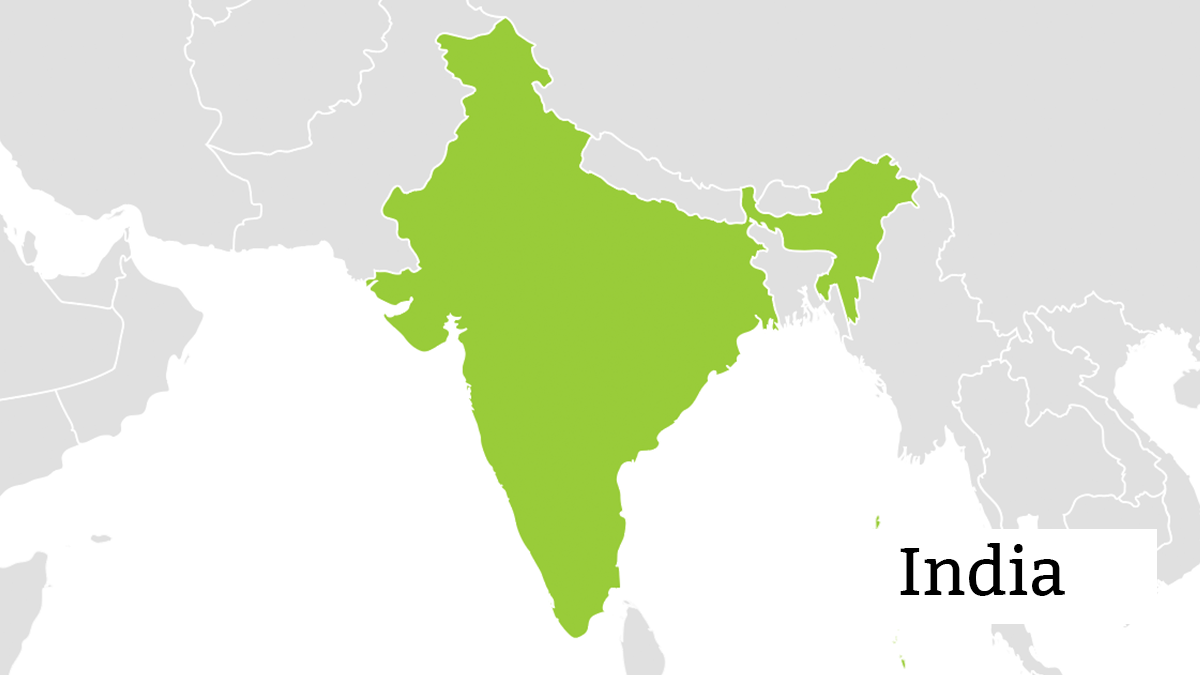
India continues to have one of the widest digital gender gaps in the world – that is, a measure of the difference between the number of women online and the number of men online. This reflects the lived reality within the country: across a range of indicators on education, employment and other key metrics, women do not enjoy an equal status economically, socially or politically.
A number of national surveys from the time demonstrate the breadth of gender inequality in India. A 2007-2008 National Sample Survey found that average wages for women are 68% of the workforce as compared to men in rural areas and 57% in urban areas. Additionally, according to the Basic Statistical Returns of the Reserve Bank of India, in 2010, women owned less than one-third of deposits in commercial banks. Further, according to a 2005–2006 National Family Health Survey, 55% of adult women are literate compared with 78% of men.
Self-help groups (SHGs) are a common means for women to pool together their resources for the collective advancement of their members. SHGs were formed and supported by government agencies or NGOs and benefited their members economically and socially. The initiative addressed the need for capacity building for rural women by organizing them into homogenous support groups that pooled their resources to engage in micro-entrepreneurship activities and share the income generated. SHGs can also be community platforms that enable women to become involved in community affairs, stand for local elections, or take action to address social or community issues such as domestic violence. Engaging with these groups offered a point of entry for a universal service fund to promote internet access among a priority group.
The digital gender gap also overlays with a rural-urban divide and a poverty gap that also exacerbate the situation for universal internet access. Rural women in poor communities can be some of the most marginalised and unconnected populations, and yet, their engagement is no less crucial as a public policy priority.
In recognition of the unique needs of poor rural women, the Universal Service Obligation Fund (the Universal Service & Access Fund, or USAF, of India) implemented a pilot initiative, entitled the Sanchar Shakti project, to facilitate self-help groups’ access to the internet and other ICTs. Beyond mere physical access to technology, the project also sought to improve rural SHGs’ access to skills, knowledge, financial services, and markets through affordable access to ICTs and in turn enrich women’s lives.
The Sanchar Shakti pilot scheme for the supply of mobile value-added services (mVAS, often also known as over-the-top or OTT services) focuses on the development of content customized to the needs of women members, including education, training, employment opportunities, financial services, government programmes, and health and social care. In addition, the project included services like mobile phone repair, solar charging points, and subsidised subscriptions to some of the relevant mVAS applications.
The Sanchar Shakti project was expected to encourage the development and commercialization of meaningful mVAS applications for rural markets, especially those targeted at rural women. It was also anticipated that the success of these projects would encourage similar initiatives to be scaled up by service providers and telecommunications manufacturers.
This unique USAF project model is a radical departure from the typical USAF project. Instead of following the more structured and rigid top-down approach that pre-defines project scope and content, as with tendering, Sanchar Shakti allowed the needs and views of stakeholders to shape the scheme and project designs. While this approach does lead to a longer timeframe for project implementation, it also facilitates a flexible, bottom-up, and collaborative approach. The partners involved are the government of India, the USAF’s central administration, the self-help group collective, and other civil society organisations.
This project stands as a sterling example of the utility of ICTs and telecommunications for inclusiveness and the need for different and distinct types of business models, especially when government seeks to procure services for those with special needs through USAFs. It has also reinforced that enabling women’s access to ICT entails a gender-responsive approach wherein apart from just access to ICT in terms of availability, affordability, convenient location, language and timing etc, the tailoring of content to address their concerns, reflect their local knowledge and needs and to be of value in their daily lives, business enterprises and family responsibilities is crucial.
One of the areas where the Sanchar Shakti project was carried out was the hilly state of Uttarakhand. Women foresters wanted to break their dependence on intermediaries and sought information on obtaining a license to market their forest-related products themselves. In addition, many women were able to find weather updates, agricultural guides, and market information for their work and reported tangible economic benefits.
Though impact assessment showed that the pilot project was successful, it could not be scaled in part on account of the rules governing the use of USAFs. In order to achieve inclusiveness, it is critical that the definition and scope of USAFs explicitly incorporate promoting access for people with specific needs and that the rules allow funding such schemes.
Initiatives like the Sanchar Shakti project are especially important in developing countries where public funds and USAFs are key components for the promotion of accessible ICTs, as bringing ICTs to vulnerable and rural groups can otherwise be commercially unviable. They also can bring significant value to their beneficiaries. Across the various Sanchar Shakti projects, deeply impactful benefits were noted. Empowerment of beneficiaries, promotion of increased productivity without displacing labour, fuller employment, more equitable distribution of key self empowering knowledge to women and improved social equality, increase in independence and enhanced self-reliance, improvement in quality of life and participation from a wide cross section of public and private sector stakeholders.
Suggested Citation: Alliance for Affordable Internet (2020). “India: Building inclusive Universal Service and Access Fund (USAF) projects.” Good Practices Database. Washington DC: Web Foundation.
